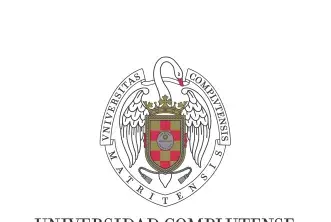
At the 11th Congress of the Spanish Association for the Sciences of Religions (SECR), on “Violence, Peace and Religion”, celebrated in Seville, Spain, from 19 to 21 May 2016, the Deputy Secretary General for External Relations of the International Dialogue Centre (KAICIID), Ambassador Alvaro Albacete, emphasised the importance of religion in peacebuilding initiatives. “Religions’ standpoints and statements against violence are needed, but they are not enough. They need to be followed through and implemented via interreligious actions,” he said.
The DSG spoke at the opening ceremony of the congress co-organized by the Universidad Pablo de Olavide, the Spanish Association for the Sciences of Religions, the International Dialogue Centre (KAICIID) and the University Institute of Sciences of Religions at the Complutense University of Madrid. This interdisciplinary congress brought together over one hundred experts who discussed the challenge of violence purportedly committed in the name of religion and offered criteria for peaceful solutions based on dialogue. The congress also addressed the contributions of religions to the areas of conflict prevention, mediation and resolution.
“This joint work between diplomacy and academia, in particular from sciences of religions, can help us to work together for a better world,” the DSG said. During his presentation, he discussed interreligious dialogue initiatives in contemporary diplomacy. “Religion can really be a force for peace, something that contributes to the laudable objective of establishing, achieving and safeguarding international peace,” he added.
During his participation on the first panel, Senior Adviser Professor Patrice Brodeur presented the Centre’s Peace Mapping Project: “The new KAICIID Peace Map provides 96 definitions of dialogue”. He explained that the rapid increase in the use of interreligious dialogue around the world corresponds to a growth in civil society.
Programme Manager for E-Learning and Virtual Platforms, Dr. Shahram Nahidi, discussed the challenges of teaching interreligious dialogue, using the case study of the Centre’s university-accredited Online Course on Interreligious Dialogue. From his experience, “one of the main challenges of education on IRD is to teach learners how to shift from naïve objectivity to critical subjectivity”. “Interreligious dialogue must not avoid or exclude political issues. Instead, it must address and use them as examples to practice dialogue,” he said.
The congress was sponsored by various organisations and institutions, including the Colegio de Abogados de Sevilla, which provided the main venue, and the Fundación Tres Culturas, where one of the panel sessions took place.
The Vice-Rector for Institutional and International Relations of the Complutense…
KAICIID Deputy Secretary General Amb. Alvaro Albacete participated in a meeting on “The role of Religious Leaders in the…


![KAICIID and Complutense Univeristy [file:field-file-image-alt-text]](/sites/default/files/styles/cards_360_270_scale_crop/public/complutense_1.jpg.webp?h=1c6943d4&itok=9f3t0Tbj)
